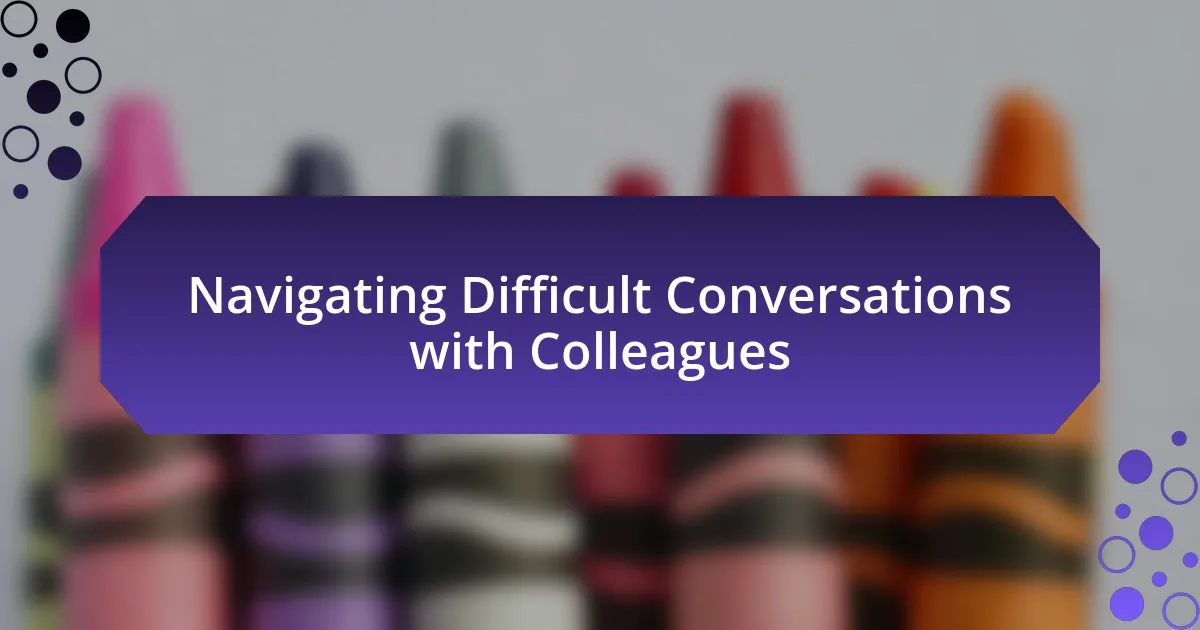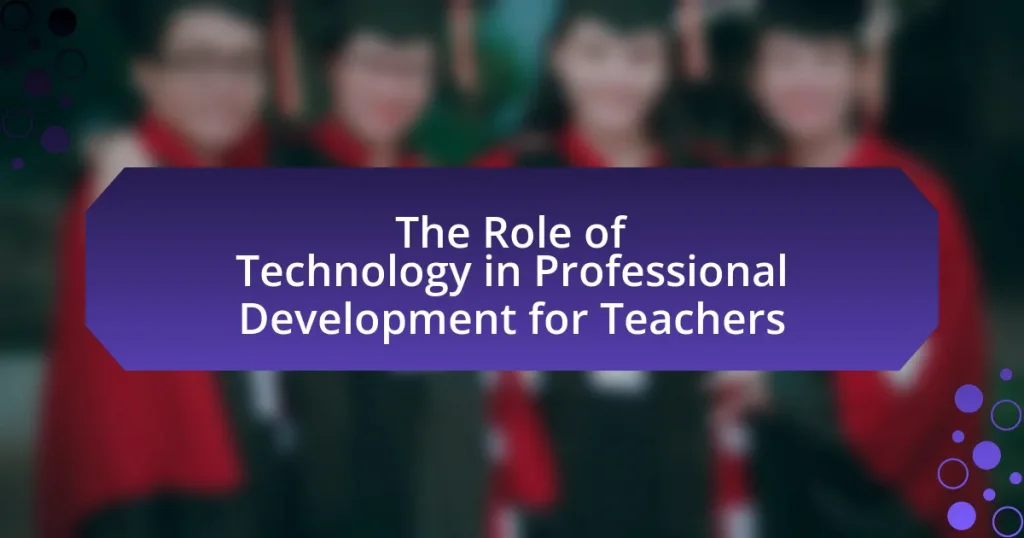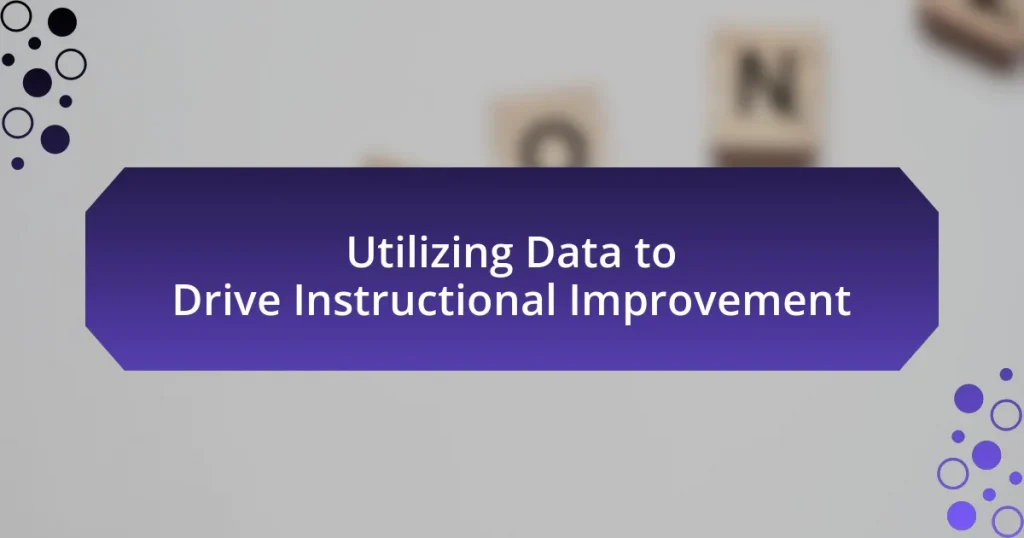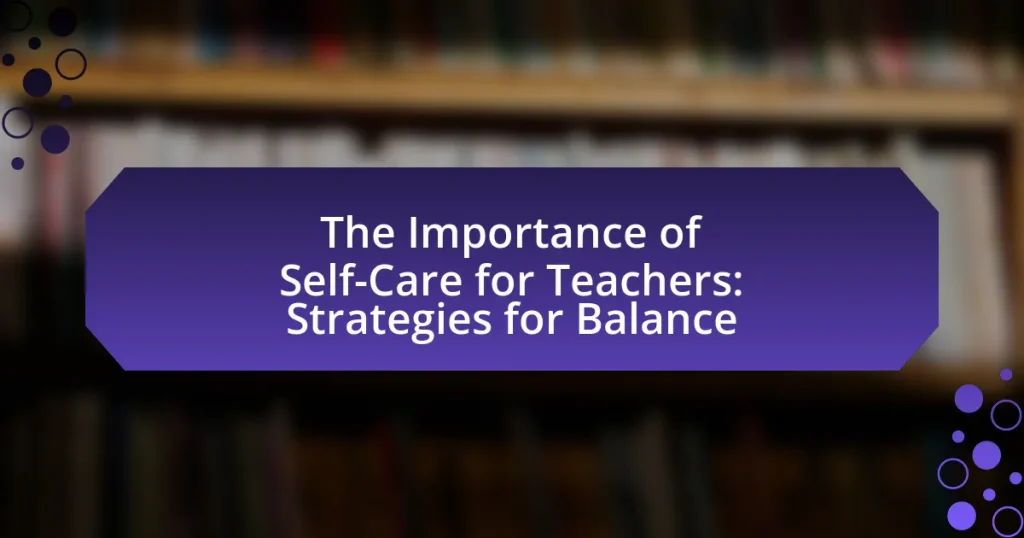Navigating difficult conversations with colleagues is a critical aspect of workplace dynamics, involving sensitive topics and conflicting opinions that can lead to discomfort. These conversations are essential for fostering open communication, addressing conflicts, and promoting a culture of transparency, ultimately enhancing employee engagement and productivity. The article explores common scenarios that necessitate difficult discussions, the skills required for effective communication, and strategies for preparing and facilitating productive dialogues. It also highlights the potential negative outcomes of avoiding such conversations, including decreased trust and team cohesion, while emphasizing the importance of follow-up actions to ensure accountability and rebuild trust post-conversation.
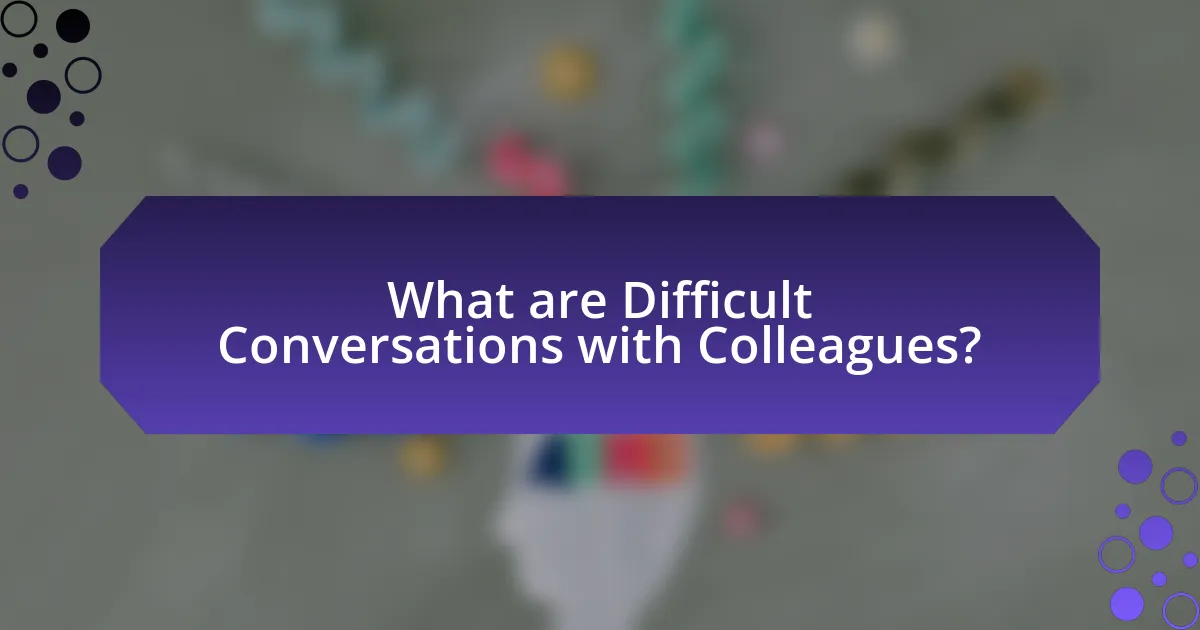
What are Difficult Conversations with Colleagues?
Difficult conversations with colleagues are interactions that involve sensitive topics, conflicting opinions, or emotionally charged issues that can lead to discomfort or tension. These conversations often arise in situations such as performance feedback, disagreements on project direction, or addressing interpersonal conflicts. Research indicates that 70% of employees avoid difficult conversations due to fear of negative outcomes, highlighting the prevalence and significance of these interactions in workplace dynamics.
Why are Difficult Conversations Important in the Workplace?
Difficult conversations are important in the workplace because they facilitate open communication, address conflicts, and promote a culture of transparency. Engaging in these conversations allows employees to express concerns, clarify misunderstandings, and foster collaboration. Research indicates that organizations with effective conflict resolution strategies experience 50% higher employee engagement and productivity, demonstrating the tangible benefits of addressing difficult topics. By prioritizing these discussions, workplaces can enhance relationships, improve morale, and ultimately drive better organizational outcomes.
What are the potential outcomes of avoiding difficult conversations?
Avoiding difficult conversations can lead to unresolved conflicts, decreased trust, and a toxic work environment. When individuals do not address issues directly, misunderstandings can fester, resulting in increased tension among colleagues. Research indicates that unresolved conflicts can lead to a 50% decrease in team productivity, as team members may become disengaged or resentful. Furthermore, the lack of open communication can erode trust, making collaboration more challenging and ultimately harming team dynamics.
How can difficult conversations impact team dynamics?
Difficult conversations can significantly impact team dynamics by fostering either conflict or collaboration. When team members engage in challenging discussions, it can lead to misunderstandings and tension, which may disrupt collaboration and decrease overall morale. Conversely, if handled effectively, these conversations can enhance trust and open communication, ultimately strengthening team cohesion. Research indicates that teams that engage in constructive conflict are more innovative and perform better, as they are able to address issues directly and find solutions collaboratively. For example, a study published in the Harvard Business Review highlights that teams that embrace difficult conversations are 25% more likely to achieve their goals compared to those that avoid them.
What Common Scenarios Lead to Difficult Conversations?
Common scenarios that lead to difficult conversations include performance issues, conflicts over differing opinions, and personal matters affecting work. Performance issues arise when an employee consistently fails to meet expectations, necessitating a discussion about improvement. Conflicts over differing opinions often occur during team projects, where individuals may have contrasting ideas on how to proceed, leading to tension. Personal matters affecting work can involve situations such as an employee dealing with stress or family issues, which may impact their professional behavior and require sensitive dialogue. These scenarios are prevalent in workplace dynamics and often necessitate careful communication strategies to resolve effectively.
How do performance issues create challenges in conversations?
Performance issues create challenges in conversations by hindering effective communication and fostering misunderstandings. When an individual is underperforming, it can lead to frustration among colleagues, which may result in defensive or aggressive communication styles. Research indicates that performance-related stress can impair cognitive functions, making it difficult for individuals to articulate their thoughts clearly or listen actively. This breakdown in communication can escalate conflicts and create a toxic work environment, as evidenced by a study published in the Journal of Occupational Health Psychology, which found that unresolved performance issues significantly correlate with increased workplace tension and decreased team cohesion.
What role do interpersonal conflicts play in difficult conversations?
Interpersonal conflicts significantly influence difficult conversations by escalating emotional tension and hindering effective communication. When individuals have unresolved conflicts, their ability to listen and engage constructively diminishes, often leading to misunderstandings and defensive behaviors. Research indicates that 70% of workplace conflicts arise from miscommunication, which underscores the importance of addressing interpersonal issues before engaging in challenging discussions. By recognizing and managing these conflicts, individuals can create a more conducive environment for dialogue, ultimately facilitating resolution and collaboration.
What Skills are Necessary for Navigating Difficult Conversations?
Effective skills for navigating difficult conversations include active listening, emotional intelligence, and assertiveness. Active listening allows individuals to fully understand the perspectives of others, which is crucial in high-stakes discussions. Emotional intelligence helps in recognizing and managing one’s own emotions as well as empathizing with others, fostering a more constructive dialogue. Assertiveness enables individuals to express their thoughts and feelings clearly and respectfully, ensuring that their viewpoints are communicated without aggression. Research indicates that these skills significantly enhance communication effectiveness and conflict resolution, as demonstrated in studies on workplace interactions.
How does active listening contribute to effective communication?
Active listening significantly enhances effective communication by ensuring that the listener fully comprehends the speaker’s message. This process involves not only hearing the words but also understanding the emotions and intentions behind them, which fosters a deeper connection and reduces misunderstandings. Research indicates that active listening can improve interpersonal relationships and conflict resolution, as it encourages empathy and validation of the speaker’s perspective. For instance, a study published in the Journal of Applied Psychology found that teams that practiced active listening reported higher levels of collaboration and satisfaction, demonstrating its critical role in facilitating constructive dialogue during challenging conversations.
What techniques can help in expressing empathy during conversations?
Active listening is a key technique for expressing empathy during conversations. This involves fully concentrating on what the other person is saying, acknowledging their feelings, and responding thoughtfully. Research indicates that active listening can enhance interpersonal relationships and foster a supportive environment, as it demonstrates genuine interest and understanding. Additionally, using reflective statements, such as paraphrasing or summarizing what the speaker has said, can validate their emotions and show that their perspective is being considered. According to a study published in the Journal of Applied Psychology, effective communication skills, including active listening, significantly improve workplace relationships and conflict resolution.
How Can One Prepare for a Difficult Conversation?
To prepare for a difficult conversation, one should first identify the key issues to discuss and clarify their objectives for the conversation. This involves reflecting on the desired outcomes and understanding the perspectives of all parties involved. Research indicates that preparation enhances communication effectiveness; for instance, a study published in the Journal of Applied Psychology found that individuals who plan their discussions are more likely to achieve positive results. Additionally, practicing active listening and anticipating potential reactions can further facilitate a constructive dialogue.
What Strategies Can Help Facilitate a Productive Dialogue?
To facilitate a productive dialogue, active listening is essential, as it ensures that all parties feel heard and understood. Active listening involves giving full attention to the speaker, acknowledging their points, and responding thoughtfully, which fosters an environment of respect and openness. Research indicates that effective communication skills, including paraphrasing and asking clarifying questions, significantly enhance understanding and reduce misunderstandings during conversations (Brown, 2019, “The Art of Communication,” Harvard Business Review). Additionally, establishing common ground before delving into contentious issues can help create a collaborative atmosphere, making it easier to navigate disagreements.
How can setting a positive tone influence the conversation’s outcome?
Setting a positive tone can significantly enhance the outcome of a conversation by fostering openness and collaboration. When participants approach discussions with positivity, they are more likely to engage constructively, leading to better understanding and resolution of issues. Research indicates that positive emotional expressions can increase the likelihood of cooperative behavior, as demonstrated in a study published in the Journal of Personality and Social Psychology, which found that individuals who maintain a positive demeanor during negotiations achieve more favorable results. Thus, establishing a positive tone not only improves interpersonal dynamics but also contributes to achieving mutually beneficial outcomes in challenging conversations.
What role does body language play in difficult conversations?
Body language plays a crucial role in difficult conversations by conveying emotions and intentions that may not be expressed verbally. Nonverbal cues such as facial expressions, posture, and gestures can significantly influence the dynamics of the interaction, often impacting the level of trust and understanding between the parties involved. Research indicates that approximately 55% of communication is nonverbal, highlighting the importance of body language in conveying messages effectively. For instance, maintaining eye contact can signal engagement and sincerity, while crossed arms may indicate defensiveness or resistance. Thus, being aware of and effectively utilizing body language can enhance communication and facilitate more productive discussions during challenging conversations.
What Are Common Pitfalls to Avoid During Difficult Conversations?
Common pitfalls to avoid during difficult conversations include failing to listen actively, becoming defensive, and allowing emotions to escalate. Active listening is crucial; when individuals do not fully engage with what the other person is saying, misunderstandings can arise, leading to further conflict. Defensiveness can hinder open dialogue, as it creates an adversarial atmosphere rather than fostering collaboration. Additionally, letting emotions take control can result in reactions that derail the conversation, making it difficult to reach a resolution. Research indicates that effective communication strategies, such as maintaining composure and focusing on the issue rather than personal attacks, can significantly improve the outcome of challenging discussions.
How can defensiveness hinder effective communication?
Defensiveness can hinder effective communication by creating barriers to understanding and collaboration. When individuals respond defensively, they often focus on protecting themselves rather than engaging in constructive dialogue. This reaction can lead to misunderstandings, as defensiveness may cause individuals to misinterpret feedback or criticism as personal attacks. Research indicates that defensiveness can escalate conflicts, as it shifts the focus from problem-solving to self-preservation, ultimately impeding the resolution of issues. For instance, a study published in the Journal of Conflict Resolution found that defensiveness in conversations often results in a breakdown of trust and increased tension among colleagues, making it difficult to reach a mutual understanding.
What are the risks of making assumptions about the other person’s perspective?
Making assumptions about another person’s perspective can lead to misunderstandings and conflict. When individuals assume they understand someone else’s thoughts or feelings, they may misinterpret intentions, which can escalate tensions in conversations. Research indicates that miscommunication is a primary cause of workplace conflict, with studies showing that 70% of workplace issues stem from misunderstandings. This highlights the importance of seeking clarification rather than relying on assumptions, as doing so fosters better communication and collaboration among colleagues.
What Follow-Up Actions Should Be Taken After a Difficult Conversation?
After a difficult conversation, it is essential to follow up with a summary of the discussion to clarify key points and ensure mutual understanding. This action helps to reinforce the main topics addressed and confirms that both parties are on the same page regarding outcomes and next steps. Additionally, sending a follow-up email or message can serve as a formal record of the conversation, which is beneficial for accountability. Research indicates that effective follow-up can improve relationships and reduce misunderstandings, as highlighted in a study by the Harvard Business Review, which emphasizes the importance of communication in workplace dynamics.
How can one ensure accountability after the conversation?
To ensure accountability after the conversation, one should document the key points discussed and any agreed-upon actions. This documentation serves as a reference for both parties, clarifying expectations and responsibilities. Following the conversation, sharing this summary via email or a shared document reinforces commitment and provides a tangible record. Research indicates that written agreements significantly increase the likelihood of follow-through, as they create a formalized understanding of the conversation’s outcomes.
What steps can be taken to rebuild trust post-conversation?
To rebuild trust post-conversation, individuals should engage in open communication, demonstrate accountability, and follow through on commitments. Open communication involves actively listening to the other party’s concerns and validating their feelings, which fosters a sense of understanding and respect. Demonstrating accountability means acknowledging any mistakes made during the conversation and taking responsibility for one’s actions, which can help to restore credibility. Following through on commitments is crucial; when promises are kept, it reinforces reliability and strengthens the trust between colleagues. Research indicates that consistent behavior and transparency are key factors in rebuilding trust in professional relationships.
What Best Practices Can Enhance Your Ability to Navigate Difficult Conversations?
To enhance your ability to navigate difficult conversations, practice active listening, maintain emotional awareness, and establish a respectful environment. Active listening involves fully concentrating on the speaker, which fosters understanding and reduces misunderstandings. Emotional awareness allows you to recognize and manage your own emotions and those of others, facilitating a more constructive dialogue. Establishing a respectful environment encourages open communication, making it easier for all parties to express their thoughts without fear of judgment. Research indicates that effective communication skills, including these practices, significantly improve conflict resolution outcomes in workplace settings.
